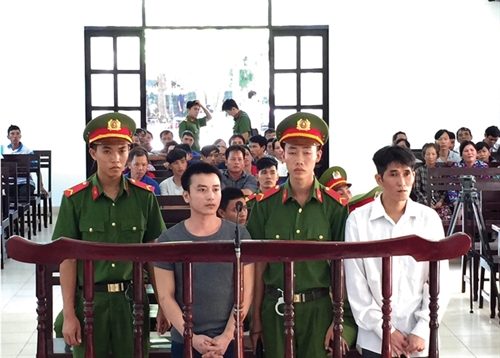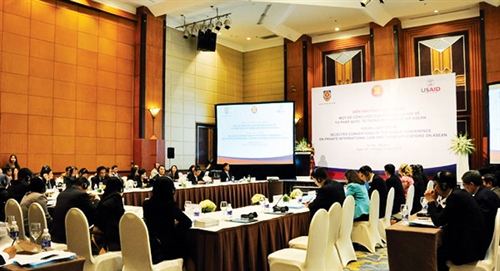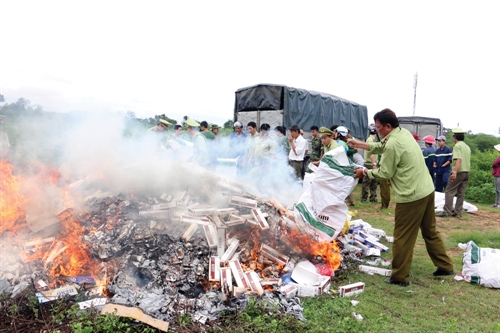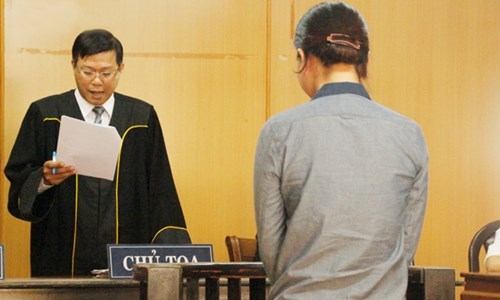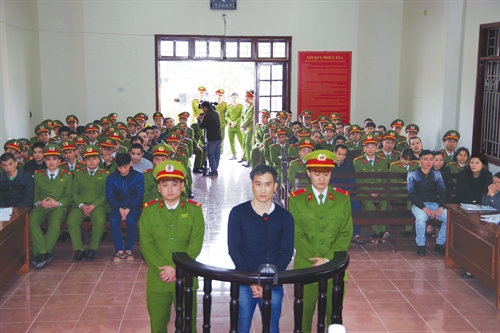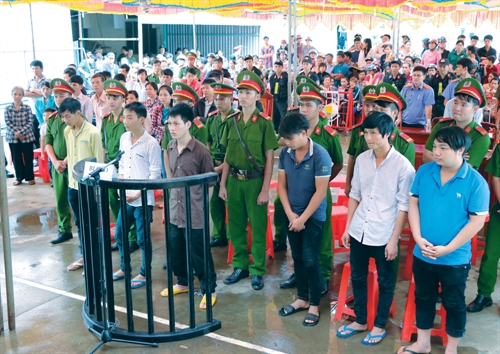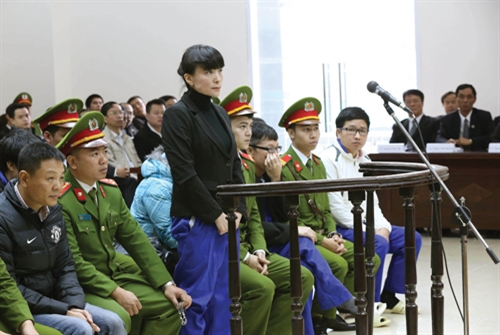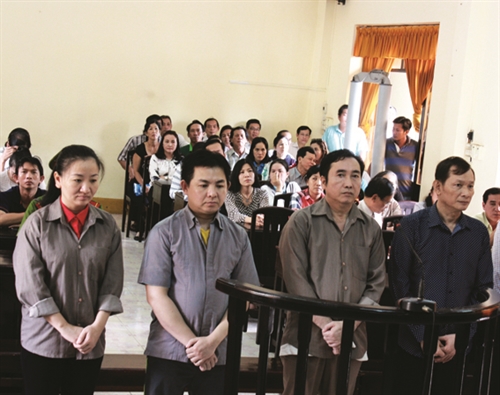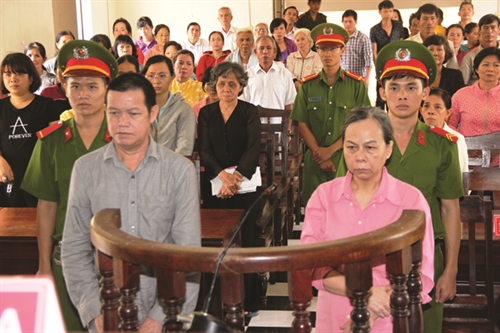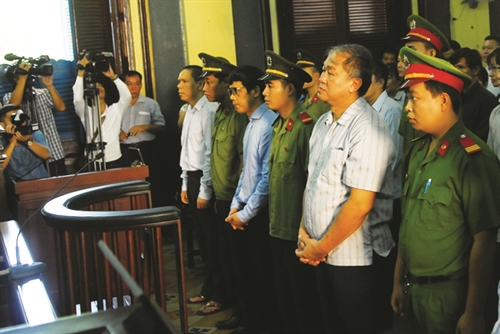Nguyen Duc Viet and Vu Thi Phuong Lan
International Law Faculty
Hanoi Law University
The legal status of foreign entities in civil proceedings under Vietnamese law encompasses their civil procedure law capacity, civil litigation act capacity, and rights and obligations when participating in civil proceedings in Vietnam. In this article, foreign entities refer to foreigners, foreign agencies and organizations and their Vietnam-based branches and representative offices.
Civil procedure law capacity and civil litigation act capacity
Under Article 69 of the 2015 Civil Procedure Code (the Code), the civil procedure law capacity is the capability to have the rights and obligations in civil proceedings as prescribed by law. Every agency, organization or individual has the same capacity to request the court to protect its/his/her lawful rights and interests. The civil litigation act capacity is the capability to exercise one’s own rights and perform one’s own obligations in civil proceedings or authorize a representative to participate in civil proceedings.
These capacities are required for any Vietnamese as well as foreign entities to participate in civil proceedings.
Article 466.1 of the Code stipulates that the civil procedure law capacity and civil litigation act capacity of a foreigner will be determined:
(i) pursuant to the law of the country of which a foreigner is a citizen; or pursuant to the law of the country where a foreigner resides, if he/she is not a citizen of any country; pursuant to Vietnamese law if he/she is a stateless foreigner residing in Vietnam;
(ii) pursuant to the law of the country where a foreigner is a citizen and resides if he/she bears two or more foreign citizenships, or pursuant to the law of the country of which a foreigner is a citizen for the longest time if the foreigner bears two or more foreign citizenships and resides in a country of which he/she is not a citizen; or
(iii) pursuant to Vietnamese law if a foreign bears two or more foreign citizenships and one of them is Vietnamese citizenship or he/she possesses a permanent or temporary residence card in Vietnam.
According to the above provisions, the capacity of foreigners bearing a foreign citizenship to participate in civil proceedings will be determined based on the citizenship legislation, and that of stateless foreigners based on the residence legislation. These provisions are consistent with the principles provided in Articles 673 and 674 of the 2015 Civil Code (the Civil Code).
In addition to the general principle, the above article specifies four cases of determination of civil capacity with regard to: a stateless person permanently residing in Vietnam; a foreigner bearing more than one foreign citizenship and residing in one of the countries of which he/she is a citizen; a foreigner bearing more than one foreign citizenship and residing in a country of which he/she is not a citizen; and a foreigner bearing multiple citizenships, including Vietnamese citizenship, and permanently or temporarily residing in Vietnam.
Compared to the 2004 Civil Procedure Code, the number of cases where Vietnamese law is applied to determine the capacity of foreigners to participate in civil proceedings is sharply reduced as the criterion that “the procedural act (of the foreigner) is carried out in the Vietnamese territory” (Article 57 of the 2004 Code) is removed.
This provision is also different from the Civil Code’s provision that requires the civil act capacity of a foreigner who establishes or conducts a civil transaction in Vietnam be determined under Vietnamese law (Article 674.2 of the Civil Code). In our opinion, Vietnamese laws, including the Civil Code and relevant laws, should be applied to determine the civil litigation act capacity of foreigners, especially those permanently residing in Vietnam, in civil proceedings as this conforms with the international law’s common principle of Lex Fori, i.e. the law of the court, that the law of the country of the court where a lawsuit is filed must be applied to the lawsuit.
Article 466.2 of the Code provides an exception:
“A foreigner may be recognized as having the civil litigation act capacity at the Vietnamese court if he/she has no civil litigation act capacity under foreign laws but has the civil litigation act capacity under Vietnamese law.”
This provision grants a “privilege” to foreigners, ensuring their right to participate in civil proceedings at the Vietnamese court under any circumstances.
Regarding foreign agencies or organizations and their Vietnam-based branches or representative offices, Article 467.1 of the Code states:
“The civil procedure law capacity of a foreign agency or organization shall be determined in accordance with the law of the country where it is established.
The civil procedure law capacity of a Vietnam-based branch or representative office of a foreign agency or organization shall be determined in accordance with Vietnamese law.”
This provision is consistent with relevant provisions of the Civil Code. However, in case a foreign agency or organization establishes or conducts a civil transaction, is involved in a dispute, or participates in civil proceedings in Vietnam, its civil legal capacity must be determined under Article 675.3 of the Civil Code while its civil procedure law capacity must be determined under the law of the country where it is established (foreign law).
In principle, a foreign agency or organization may only establish its branches or representative offices in Vietnam in accordance with Vietnamese law, so it is natural that the civil procedure law capacity of such branches or representative offices must be determined under Vietnamese law.
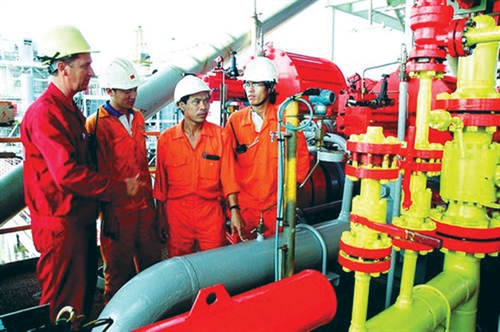 |
| Vietnamese and Russian engineers work together on an oil rig of Vietsovpetro JSC__Photo: Vietsopetro |
Rights and obligations of foreign entities in civil proceedings
Based on the principles of national treatment and reciprocity, the rights and obligations of foreigners, foreign agencies or organizations and their Vietnam-based branches or representative offices are specified in Articles 465, 468 and 472 of the Code.
First, the Code guarantees the right of foreign entities to initiate lawsuits, on their own or under authorization, at the Vietnamese court to request protection of their lawful rights and interests which are infringed upon or disputed (Article 4 and Article 465.1). This provision concretizes the constitutional principles that “all people are equal before law” and “foreigners (…) have their lives, property, rights and legitimate interests protected by Vietnamese law” (Articles 16 and 48 of the 2013 Constitution).
However, Vietnam-based branches or representative offices of foreign agencies or organizations do not automatically have the right to initiate lawsuits at the Vietnamese court to request protection of lawful rights and interests of their agencies or organizations. They may do so only when these rights and interests are infringed upon or disputed and they are authorized by their agencies or organizations. Such authorization is also required in case these branches or representative offices wish to initiate lawsuits at the Vietnamese court to seek protection of their own lawful rights and interests which are infringed upon or disputed. That is reasonable although the Code remains silent about the capacity of these branches or representative offices to do so at their own will.
Article 468 of the Code clearly articulates the right of foreigners, foreign agencies or organizations and their Vietnam-based branches or representative offices to defend on their own or hire lawyers or other persons to defend their lawful rights and interests in accordance with Vietnamese law.
After initiating a civil lawsuit or participating in civil proceedings, basically foreigners, foreign agencies or organizations and their Vietnam-based branches or representative offices have the same litigation rights as Vietnamese counterparts prescribed in Articles 70 thru 74 of the Code. Should these foreign entities participate in civil proceedings in the capacity as defense counsels for lawful rights and interests of involved parties, witnesses, expert witnesses, interpreters or representatives, they will also have the rights provided in Articles 76, 78, 80, 82 and 86 of the Code. However, it should be noted that relevant specialized laws provide some exceptions to litigation rights of foreign entities, such as the limitation on the participation of foreign lawyers in the capacity as representatives or defense counsels in judicial proceedings in Vietnam (Article 70 of the 2006 Law on Lawyers, revised in 2012) or the requirement that judicial assessment by foreign individuals or institutions may only be requested if to-be-assessed objects are located overseas or the professional capacity or assessment equipment and facilities of domestic judicial assessors fail to meet the assessment requirements (Article 35.1 of the 2012 Law on Judicial Assessment).
In addition to the above-mentioned rights like Vietnamese entities, foreign entities may request, through a Vietnamese court, foreign authorities to ascertain the addresses of other involved parties or competent agencies to search for persons absent from their places of residence, or request a Vietnamese court or foreign authorities to declare that an involved party is missing or dead under Vietnamese law or foreign law or a treaty to which Vietnam is a contracting state (Article 473.2 of the Code). They are also entitled to receive Vietnamese courts’ notices of acceptance of civil cases or matters which state the time and venue for opening meetings to examine the handover, access and disclosure of evidence and to hold conciliations, re-open conciliation meetings, open or re-open court hearings, if foreign entities participating in civil proceedings are overseas (Article 476 of the Code). In case the Vietnamese law or a treaty to which the Socialist Republic of Vietnam is a contracting party required the application of a foreign law (Article 481.2 of the Code), foreign entitles also have the right to supply such law to the court.
Besides, the Vietnamese State may, according to the principle of reciprocity, restrict the civil litigation rights of foreigners, foreign agencies or organizations and their Vietnam-based branches or representative offices of the countries where their courts restrict these rights of Vietnamese citizens or agencies or organizations in such countries (Article 465.3 of the Code).
Regarding obligations, foreigners, foreign agencies or organizations and their Vietnam-based branches or representative offices bear the same obligations as Vietnamese counterparts (Articles 2 and 465). These obligations are specified in Articles 70, 71, 72, 73, 76, 78, 80 and 82 of the Code for different capacities of foreign entities participating in civil proceedings. They include basic obligations to respect the court, strictly observe court hearing rules, pay in advance law-prescribed legal costs, court fee and other procedural expenses, provide documents and evidence, prove for protection of their lawful rights and interests, strictly abide by legally effective judgments and rulings, etc.
In addition, the above foreign entities have the following special obligations:
